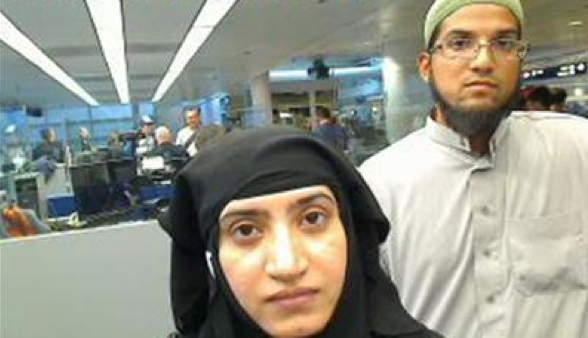UPDATE: It gets worse. ABC News is reporting that Homeland Security officials have been bound by a secret US policy not to scrutinize visa applicants’ social media footprint because the Obama administration feared bad press over “civil liberties.” This represents an stunning, intentional dereliction of duty — all for PR:
Fearing a civil liberties backlash and “bad public relations” for the Obama administration, Homeland Security Secretary Jeh Johnson refused in early 2014 to end a secret U.S. policy that prohibited immigration officials from reviewing the social media messages of all foreign citizens applying for U.S. visas, a former senior department official said. “During that time period immigration officials were not allowed to use or review social media as part of the screening process,” John Cohen, a former acting under-secretary at DHS for intelligence and analysis. Cohen is now a national security consultant for ABC News. One current and one former senior counter-terrorism official confirmed Cohen’s account about the refusal of DHS to change its policy about the public social media posts of all foreign applicants.
This administration seeks to curtail US citizens’ second amendment rights rights — relying, in part, on a secret list, without due process — but exposes the country to risk by bending over backwards to safeguard foreign nationals’ “civil liberties.” As noted below, these are people applying for the privilege of entering our country. Some defenders of the policy say sifting through a massive number of applicants’ Facebook and Twitter feeds would be logistically impossible, given the resources available. If that’s true, what does that say about the thoroughness our current vetting standards? And if that’s true, are we allowed to suggest that either (a) maybe we should think about stemming the flow of immigrants to a rate at which we can properly screen people, or (b) perhaps some form of “profiling” to trigger additional screening should be considered? Or aren’t we allowed to address uncomfortable realities?
Source: Guy Benson, http://townhall.com
 Listen Online
Listen Online Watch Online
Watch Online Find a Station in Your Area
Find a Station in Your Area









 Listen Now
Listen Now Watch Online
Watch Online
